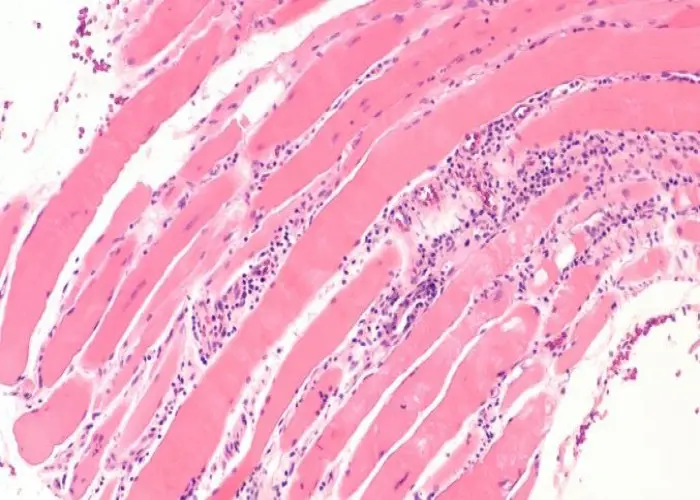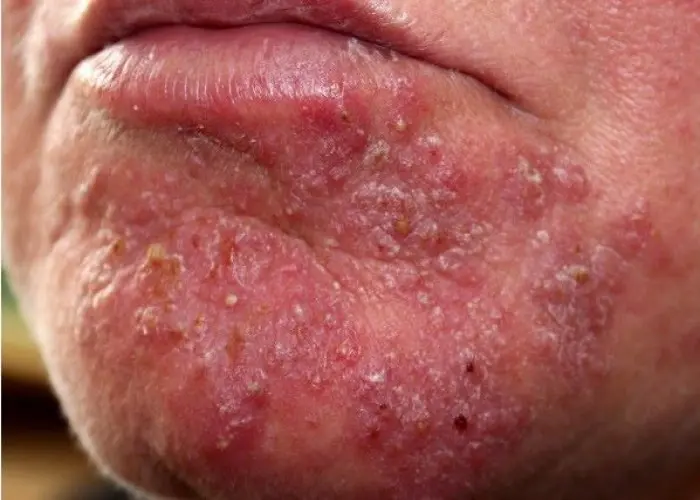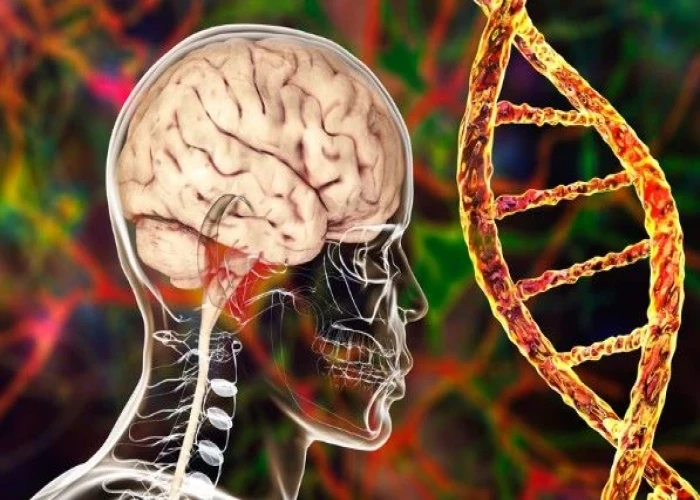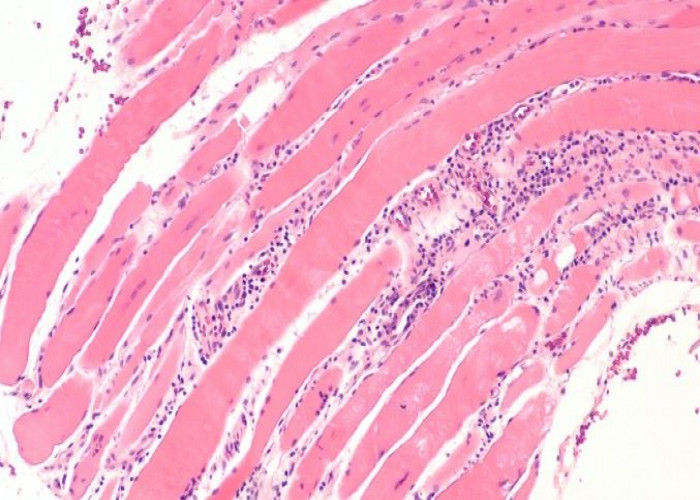 Welcome
Welcome
“May all be happy, may all be healed, may all be at peace and may no one ever suffer."
Dermatomyositis

Dermatomyositis is a rare autoimmune disorder that primarily affects the muscles and skin. It is characterized by muscle weakness and a distinctive skin rash.
Symptoms of dermatomyositis can include:
- Muscle weakness, particularly in the neck, shoulders, hips, and back
- Skin rash, usually on the face, neck, chest, and back, that is red or purple in color and can be accompanied by scaling or dryness
- Difficulty swallowing or breathing in more severe cases
- Fatigue, weight loss, and fever
- Joint pain or stiffness
The exact cause of dermatomyositis is not known, but it is thought to be related to an overreaction of the immune system to the body's own tissues. It can occur at any age but is more common in adults over 50.
Treatment for dermatomyositis typically involves a combination of medications to suppress the immune system, such as corticosteroids and immunosuppressive drugs, and physical therapy to help maintain muscle strength and function. In more severe cases, intravenous immunoglobulin or plasmapheresis may be used.
It is important to consult with a healthcare professional or specialist in rheumatology or dermatology for an accurate diagnosis and appropriate treatment plan if you experience symptoms of dermatomyositis.
Research Papers
Disease Signs and Symptoms
- Skin rash
- Itching
- Muscle weakness
Disease Causes
Dermatomyositis
The cause of dermatomyositis is unknown, but the disease has much in common with autoimmune disorders, in which your immune system mistakenly attacks your body tissues.
Genetic and environmental factors also might play a role. Environmental factors could include viral infections, sun exposure, certain medications and smoking.
Disease Prevents
Disease Treatments
There's no cure for dermatomyositis, but treatment can improve your skin and your muscle strength and function.
Medications
Medications used to treat dermatomyositis include:
- Corticosteroids. Drugs such as prednisone (Rayos) can control dermatomyositis symptoms quickly. But prolonged use can have serious side effects. So your doctor, after prescribing a relatively high dose to control your symptoms, might gradually reduce the dose as your symptoms improve.
- Corticosteroid-sparing agents. When used with a corticosteroid, these drugs can decrease the dose and side effects of the corticosteroid. The two most common medications for dermatomyositis are azathioprine (Azasan, Imuran) and methotrexate (Trexall). Mycophenolate mofetil (Cellcept) is another medication used to treat dermatomyositis, particularly if the lungs are involved.
- Rituximab (Rituxan). More commonly used to treat rheumatoid arthritis, rituximab is an option if initial therapies don't control your symptoms.
- Antimalarial medications. For a persistent rash, your doctor might prescribe an antimalarial medication, such as hydroxychloroquine (Plaquenil).
- Sunscreens. Protecting your skin from sun exposure by applying sunscreen and wearing protective clothing and hats is important for managing the rash of dermatomyositis.
Therapy
Depending on the severity of your symptoms, your doctor might suggest:
- Physical therapy. A physical therapist can show you exercises to help maintain and improve your strength and flexibility and advise you about an appropriate level of activity.
- Speech therapy. If your swallowing muscles are affected, speech therapy can help you learn how to compensate for those changes.
- Dietetic assessment. Later in the course of dermatomyositis, chewing and swallowing can become more difficult. A registered dietitian can teach you how to prepare easy-to-eat foods.
Surgical and other procedures
- Intravenous immunoglobulin (IVIg). IVIg is a purified blood product that contains healthy antibodies from thousands of blood donors. These antibodies can block the damaging antibodies that attack muscle and skin in dermatomyositis. Given as an infusion through a vein, IVIg treatments are expensive and might need to be repeated regularly for the effects to continue.
- Surgery. Surgery might be an option to remove painful calcium deposits and prevent recurrent skin infections.
Disease Diagnoses
Disease Allopathic Generics
Disease Ayurvedic Generics
Disease Homeopathic Generics
Disease yoga
Dermatomyositis and Learn More about Diseases

Atypical hyperplasia of the breast

Folliculitis

Metachromatic leukodystrophy

Cerebral palsy

Spider bites

Lip cancer

Inflammatory bowel disease (IBD)

Farsightedness
Dermatomyositis, Heliotrope rash, Juvenile dermatomyositis, ডার্মাটোমায়াইটিস
To be happy, beautiful, healthy, wealthy, hale and long-lived stay with DM3S.
